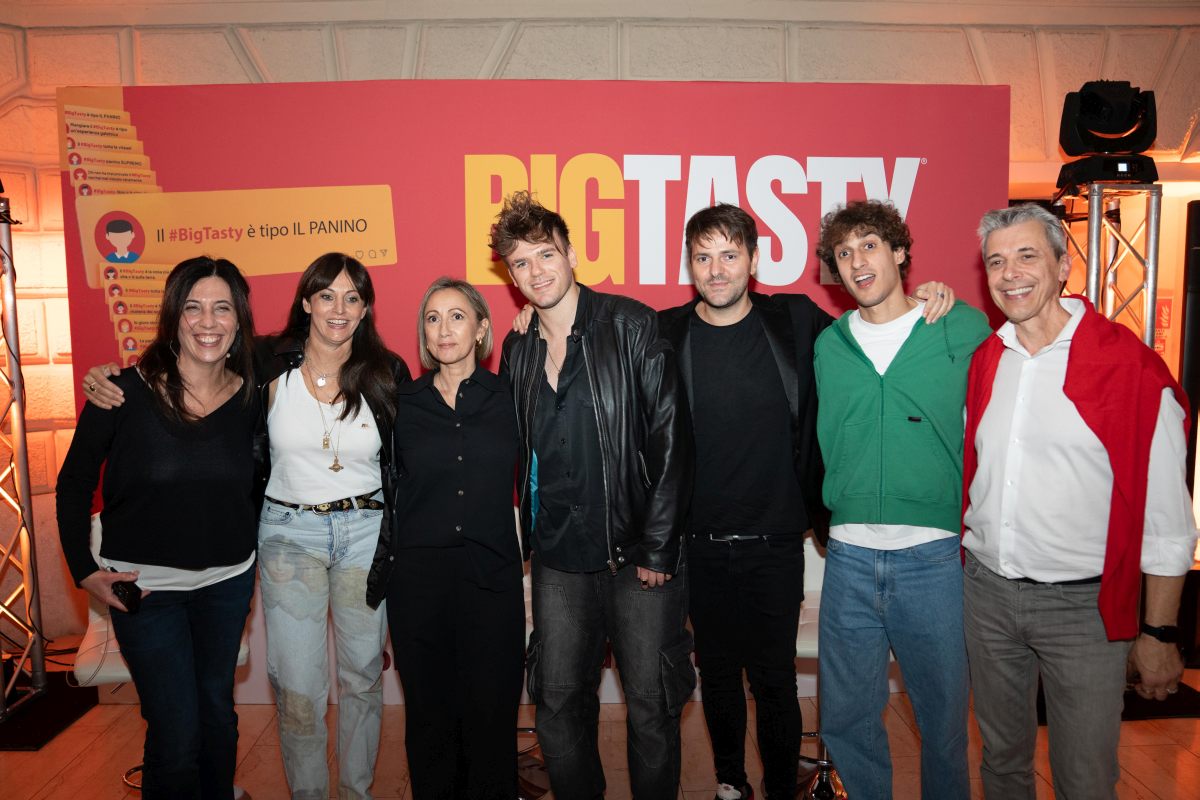MILAN (ITALPRESS) – The results of the “Generations Compared” research conducted by AstraRicerche and commissioned by McDonald’s to deepen the link between Generations X, Y (Millennials) and Z in Italy were presented. A research presented to celebrate the return of Big Tasty, McDonald’s iconic sandwich, first launched in Italy in 2004, which has been in demand by Millennials in recent years and which Gen Z is discovering today for the first time. Within a week of its return to the more than 720 restaurants in Italy, more than 1 million Big Tasty has been sold.The research, conducted in October on a representative sample of three Italian generations (18 to 59 years of age), investigates intergenerational bonding and exchange by bringing out the shared desire to spend time together; the use of a different language with a broader vocabulary for Gen X (44-59 years old) and all-new words for Gen Z (18-27 years old), often incomprehensible to older people; the experience that really unites everyone: eating out together.There is widespread knowledge of the current “generational labels” and a general identification in them: 79.1 percent of respondents say they know the name of their generation by their biographical age, and 60.3 percent feel they really belong to it by sharing its behaviors, values, attitudes and tastes.Behind an apparent distance, emerges, the desire to spend time together. Indeed, the positive effects of “intergenerational encounters” dominate: older people recognize the opportunity to pass on knowledge (for 32.9 percent), stimulating their minds to compare (for 32.1 percent), coming into contact with different tastes (for 29.5 percent), and the joy that comparison generates (for 28.1 percent). About three out of four respondents, think that spending time with the younger generation means learning something new. Hence the desire to want to spend even more time in their company (for 71.1%). Positive effects also win out for younger people: the relationship with those who are older makes them more mature (for 37.5%), imparts knowledge to them (for 37.2%), and makes them feel comfortable (for 33.2%). Few negative effects, on the other hand, emerged: the realization that one is too different, therefore, that it is not easy to communicate (17.1% of the “older” population and 18.5% of the “younger” population affirmed this) and irritation at the different way of approaching life and difficulties (11.2% and 10.9%, respectively). “Goat,” “Blast,” “Skipping.” This is youth slang, the words that young people aged 15 to 27 in Italy use in everyday life. 60.2 percent of those over that age (so all those over 28 in the sample) feel that youthful language has become impoverished. But surprisingly, the older generations themselves state that these expressions, though sometimes not understood, intrigue them: the over-28s appreciate learning the most commonly used words of young people, memorizing their meaning (39.5%) and sometimes even using them (25.8%). While most of the respondents claim to know some of the most popular words in youth slang, the same respondents are not as sure and convinced of their meaning: distinctly more heard and known are “Bro,” “LOL,” and “Skipping,” which approach or exceed 90 percent recognition; much less “Blast,” “GOAT,” “Drip,” and “Cursing,” with indications around 60 percent or lower.What connects Gen X, Y and Z? The simplest and most common gesture known: eating together outside the home. In fact, more than half of respondents say it improves their relationship with people of both the younger (for 51.7 percent) and older (for 54.7 percent) generation. Different ages, different ways of behaving and talking, yet a moment of conviviality is enough to create a bridge between the different generations: this is the case for 65.8% of respondents. And if around the table there are people of different ages eating a simple and tasty meal like a sandwich, it is shared by more than 72% of the sample that a positive atmosphere and a situation of confrontation between different generations is created for 69.6%. 60.9% conclude by saying: with a good sandwich in hand understanding each other is easier.
– McDonald’s press office photo –
(ITALPRESS).

